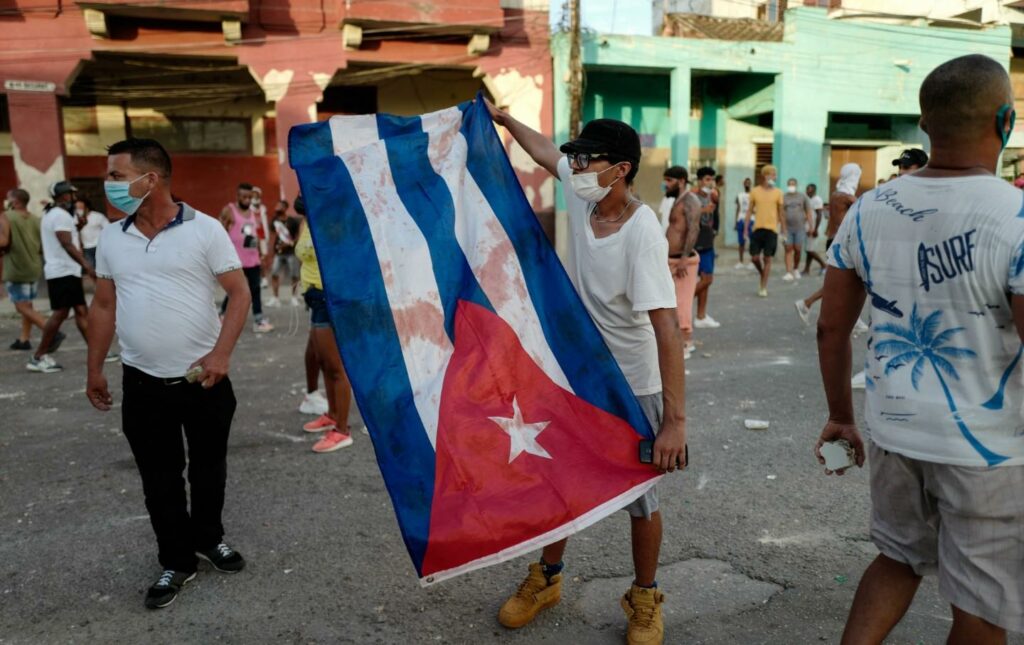In the shadows of geopolitics, a quiet but persistent recruitment effort continues to unfold, drawing in an unexpected group of individuals: Cubans. Despite the distance and cultural differences, Russia has been recruiting Cubans to fight in Ukraine, adding a unique twist to the ongoing conflict in Eastern Europe. This unusual partnership raises questions about motivations, allegiances, and the interconnected nature of modern warfare. Let’s delve deeper into this intriguing phenomenon that highlights the complexities of global power dynamics.
The ongoing recruitment efforts by Russia
Russia’s ongoing recruitment efforts in Cuba have been a cause for concern as reports have surfaced indicating that Cubans are still being recruited to fight in Ukraine. Despite international pressure and sanctions, Russia continues to target individuals in Cuba for military recruitment, further escalating tensions in the region.
It is reported that Russian recruiters have been promising Cuban citizens financial incentives and other benefits in exchange for their participation in the conflict in Ukraine. This exploitation of vulnerable individuals highlights the desperation of Russia’s recruitment efforts and the lengths they are willing to go to in order to further their agenda. The recruitment of Cubans by Russia not only violates international norms but also puts the lives of these individuals at risk in a conflict that is not their own.
Challenges faced by Cuban recruits
Many Cuban recruits face numerous challenges when recruited by Russia to fight in Ukraine. One of the main challenges is the language barrier, as most Cubans do not speak Russian or Ukrainian, making communication difficult both on and off the battlefield. This can lead to misunderstandings, lack of coordination, and ultimately jeopardize the safety of the recruits.
Additionally, Cuban recruits often struggle with adapting to the harsh climate in Ukraine, especially during the winter months. The cold weather conditions can be brutal, causing health issues such as frostbite and hypothermia. This further adds to the physical and mental toll that the recruits endure while serving in a foreign country. Despite these challenges, many Cuban recruits continue to bravely serve alongside Russian forces in Ukraine, facing adversities head-on.
Implications for international relations
Russia’s ongoing recruitment of Cuban nationals to fight in Ukraine has significant . This practice not only violates international norms but also risks further escalating the conflict and undermining diplomatic efforts to find a peaceful resolution.
The involvement of Cuban fighters in Ukraine could strain relations between Russia and Cuba, as well as with other countries in the region. It also raises concerns about the extent of Russia’s influence in foreign conflicts and its willingness to disregard international laws and agreements. As such, the international community must closely monitor and address this issue to prevent further destabilization in the region.
Ensuring the safety and well-being of Cuban fighters
Reports have surfaced revealing that Russian officials are continuing to recruit Cuban fighters to participate in the ongoing conflict in Ukraine. This alarming trend raises concerns about the safety and well-being of these individuals, who may be lured into a dangerous and volatile situation.
It is crucial for the Cuban government to take action to protect its citizens from being exploited as mercenaries in foreign conflicts. **Ensuring that proper measures are in place to prevent the recruitment of Cuban fighters by foreign powers** is essential in safeguarding the lives and rights of these individuals.
Concluding Remarks
While the situation of Cubans being recruited by Russia to fight in Ukraine continues to raise concerns, it highlights the complex web of geopolitical alliances and conflicts that shape our world. As we navigate through these turbulent times, it is important to stay informed and vigilant about the various ways in which international politics can impact individuals and societies. Let us hope for a peaceful resolution to the conflict in Ukraine and for the safety and well-being of all those involved. Thank you for reading.
